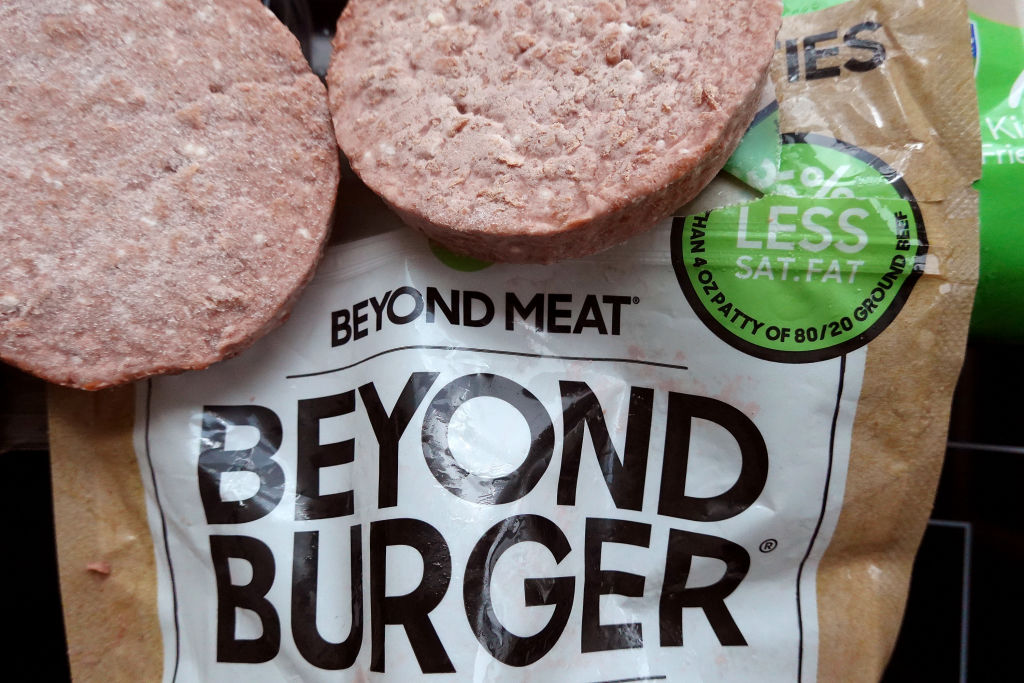A food processing plant belonging to one of the biggest faux meat companies is riddled with bacteria and food safety violations.
Internal documents and photos from the Beyond Meat plant in metro Philadelphia paint a picture of dangerous conditions with possible repercussions for consumers.
Bloomberg obtained the evidence from plant whistleblowers, publishing the findings in a Monday report.
A food safety attorney interviewed by Bloomberg indicated that the conditions at the plant were seriously unhygienic.
“If neat and tidy is one and filthy is 10, I’d put this at an eight,” attorney Bill Marler said of the plant.
“Mold growth takes a while — that underscores a lack of cleanliness.”
Purported photos from the faux meat plant — a 45-minute drive on the Pennsylvania Turnpike from Philadelphia — show mold growing on walls, as well as soiled containers used in food preparation.
Photos and internal documents from a Beyond Meat plant in Pennsylvania show apparent mold, Listeria and other food-safety issues, compounding problems at a factory the company had expected to play a major role in its future https://t.co/zZCgp4WQg6 pic.twitter.com/CdjeGR9EbK
— Bloomberg (@business) November 21, 2022
Plant-based “meats” manufactured at the facility were found infected with the bacteria Listeria at least 11 different times since the second half of 2021, according to documents obtained by Bloomberg.
The food-borne infectious bacteria can cause illness for those who consume it, and it contains serious health risks for pregnant women, according to the Food and Drug Administration.
The FDA is yet to make a safety inspection of Beyond Meat’s Pennsylvania facility since the public company acquired the plant, according to Bloomberg.
Internal plant documents also suggested that inorganic materials like wood, string and metal had been found inside Beyond Meat products engineered at the facility.
In spite of this, the Pennsylvania Department of Agriculture “found no instances of nonconformance with regulations,” hailing Beyond Meat’s food safety protocols in reports that followed March and September plant visits, according to Bloomberg.
Beyond Meat declined to comment when questioned on the documents and photos by Bloomberg.
The company produces plant-based products made to resemble hamburger patties, sausages, and other staple meats.
Economic prospects for the faux meat industry have taken a turn for the worse in 2022, with demand for the chemically engineered meat alternatives failing to materialize as investors anticipated.
Proponents of fake meat point to it as an environmentally preferable alternative to the animal products that humans have consumed for thousands of years.
This article appeared originally on The Western Journal.
























